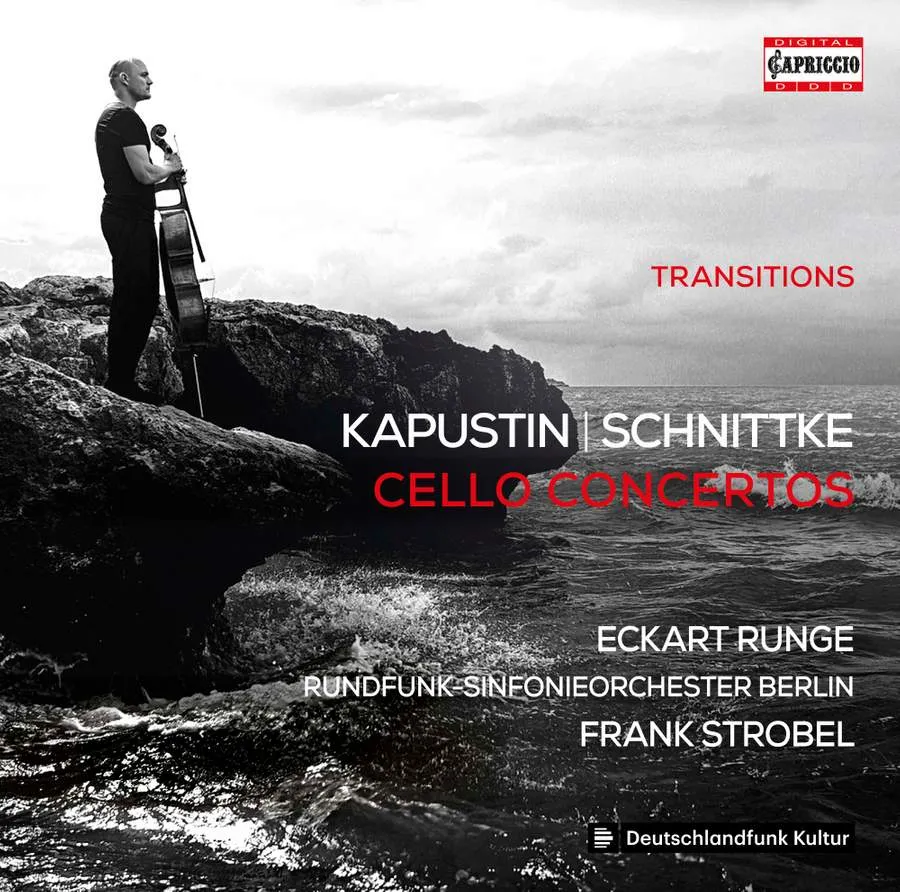
Transitions Kapustin: Cello Concerto No. 1; Schnittke: Cello Concerto No. 1 Eckart Runge (cello); Berlin Radio Symphony Orchestra/Frank Strobel Capriccio C5362 68:24 mins
There was no single response to the Soviet cultural agenda in its dying decade, as this recording amply demonstrates: Nikolai Kapustin’s joyful, American swing was as defiant an expression of individuality as Schnittke’s coruscating late Romanticism. The music of the late Ukrainian-born composer and jazz pianist (1937-2020) fell out of favour in the ’70s. We have Eckart Runge to thank for this first recording of his Cello Concerto No. 1: Kapustin entrusted the score to him ten years ago. Though written in 1997, it feels like a throwback to 1950s big band jazz, more Bernstein than Gunther Schuller, unapologetically driven by the pleasure principle and brought alive here by the hugely versatile Runge and a slick partnership with the Berlin Radio Orchestra.
Leaving aside moments of cliché, the intimate interplay between rhythm section, brass and cellist has a crackling spontaneity. The opening Allegro bowls along with breezy brilliance; quotes from Bach’s sarabandes preface a languidly swung, bluesy Largo. A driving chromatic moto perpetuo finale builds to a brassy blaze. It’s an ideal vehicle for Runge, a regular jazz improviser: I’d love to see others take it up; Abel Selaocoe springs to mind.
From light to dark, Schnittke’s almost contemporaneous concerto (1986) opens up a vast sonic theatre. When Schnittke was hanging on to life following a massive stroke, the compositions he delivered were articles of faith, spiritually, politically and musically. This, one of his best works, shudders with an anguish that has not grown cold, particularly in its powerful opening where eloquent lament meets seismic brass eruption. The Largo has a kinship with Shostakovich’s funereal Cello Concerto No. 2; a demonic, militaristic scherzo culminates in a finale of luminous chorales. Conductor Frank Strobel and Runge, a vivid advocate, make a compelling case.
Helen Wallace